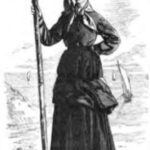When the Jesuits were expelled, all the property that the company had acquired over the centuries was located to be sold. In order to supervise the registration of properties, a regulation was made in the ceudula published in 1769, by which a municipal board was formed, which would be supervised by another Provincial board (Armando Alberola Roma). The reason for the formation of this second junta was to prevent the first one from carrying out occult activities in collusion with the Jesuits. Studies revealed that the Jesuits had properties in both rural and urban areas. Regarding the former, they had extensions of land with emphyteutic contracts. In the urban environment they usually had houses as well as other less frequent buildings such as warehouses. These properties could be sold and on many occasions, the money obtained was used to maintain the pensions of the exiled Jesuits. However, another spectrum of properties could not be sold because they were acquired for cult purposes.
Collection: Texts
Chronology: XVIII
Scope: Secondary Education, Baccalaureate, University
Link: http://rua.ua.es/dspace/handle/10045/4670
Resource type: Historical source
Source: A. M. A. Arm. 1, lib. 45, ff. 93-102
Language: Spanish
Date: 1769
Owner: Djebril Bouzidi (Modernalia)
Identifier: A. M. A. Arm. 1, lib. 45, ff. 93-102
Abstract: Fragment of text listing those goods that are unsaleable because they were intended to be purchased for worship
Tags





